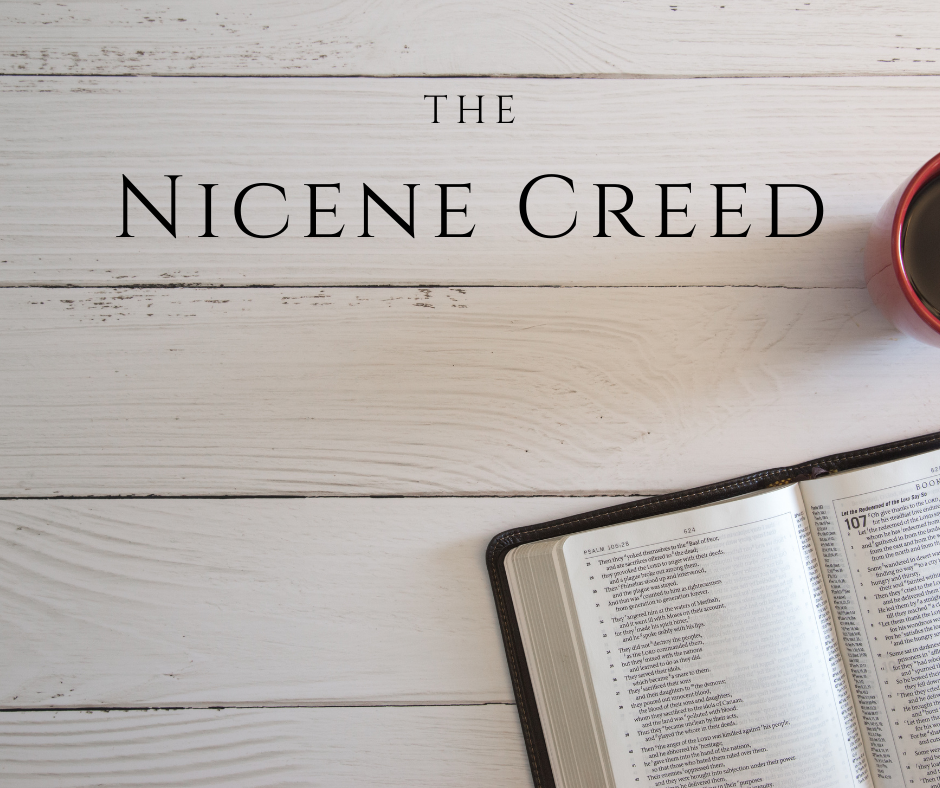For us and our salvation
The next portion of the creed looks at the Son as he comes to earth as the mediator between God and man. The introductory statement, “For us men and for our salvation,” teaches us the important decision we have mentioned before (The only Son of God), the ontological and economic Trinity. Last week, we looked at God’s divine activity or the doctrine of inseparable operations. Each person of the Trinity is the creator. The term “economic Trinity” focuses on what God does; “ontological Trinity” focuses on who God is. One of these clear distinctions of the Economic Trinity is the work of Salvation and Redemption. Only the Son, the second person of the Trinity, becomes a man and is the meditator between God and Man (1 Tim 2:5). God is the one who saves his elect (Jon 2:9). The creed is looking at Christ and the redemption he accomplished and applied.
The story of the bible is one of redemption from start to finish. The redemption of God’s elect people as God revealed and fulfilled his promises through the history of the world. The bible shows how mankind fell and lost communion with God. Yet, God voluntarily condescended in the way of a covenant to redeem his people and to restore what was broken and lost in the fall through the work of justification, adoption, sanctification, and glorification.
Christ’s incarnation was twofold, for us and for our salvation. There is a beautiful understanding of this line that could be quickly overlooked. 1) The love God has for his people, and 2) the horrendous sin that separates us from God. God’s love can often be misused and has become the creed of modern evangelistic Christians, “God is Love.” It seeks to claim that God is love (defined by our meaning). However, we can often throw out the ‘baby with the bathwater.’ God’s love for his people is phenomenal, and we water it down when we do not look at his love biblically. The incarnation’s purpose was that God loved his people enough not to leave them in their estate of sin and misery. The good news of Jesus Christ is not only that God loves his people, but he saves them.
Salvation is a very Christian word that we can also water down. We are currently reading through ‘The Little Pilgrim’ with our children. For many chapters, Stella would ask, when will Christian get rid of his burden off his back. She saw that the load (sin) was not good for Christian. When he looks up at the cross, and the straps are broken and rolled down the hill, Stella’s eyes lit up. Christian was freed from his burden. His response was joy as he thought about what the King’s Son had done for him.
The two-fold nature of Christ’s incarnation is that Christ came for us AND for our salvation. Christ restored the communion which was lost. The sin, which is the burden of our back, was removed because of Christ. We will spend the next weeks looking at the life, death, resurrection, accession, and return of Christ.




